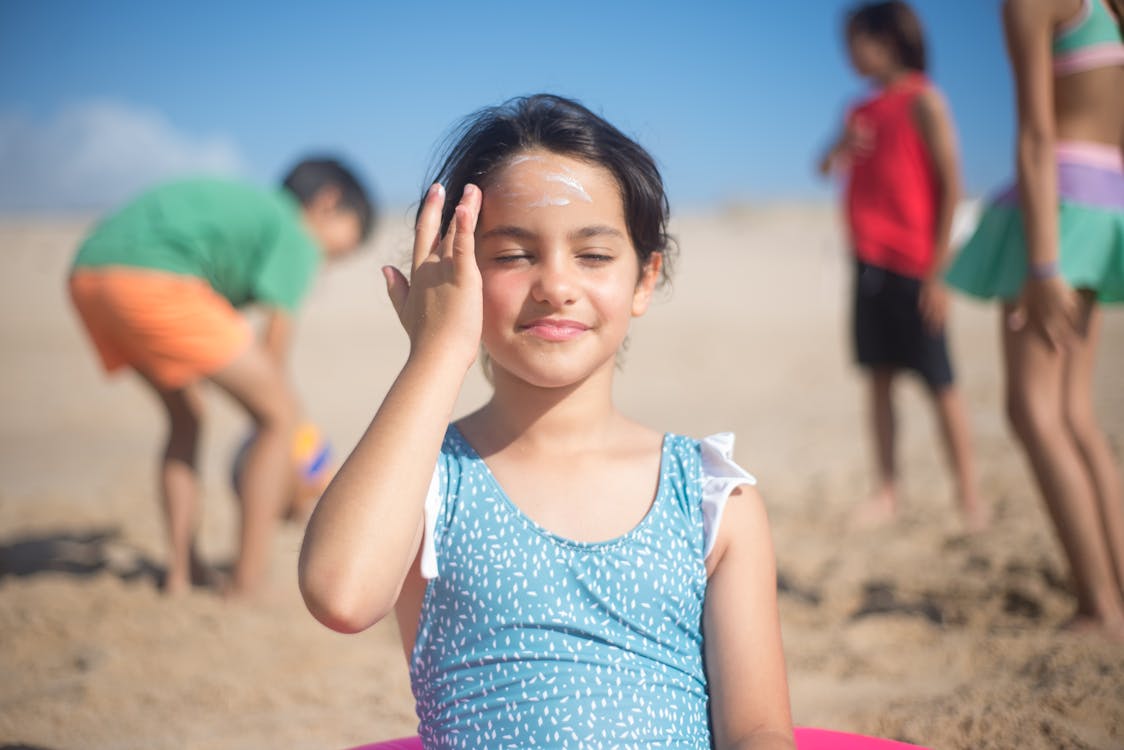
Summer brings the impulse of going outside, hitting the beach, and taking camping trips. But soaring temperatures and harsh sunlight can bring about health risks. Even leisurely activities come with hidden dangers. Learn how to avoid concealed risks.
1. Avoid intense outdoor activities to reduce the risk of heat stroke and heat exhaustion. These serious heat-related conditions can develop when the body struggles to regulate its temperature after prolonged exposure to high temperatures (like outdoor work or exercise). It is important to take breaks and adapt your daily routines to stay cool, especially during the hottest part of the day.
2. Prioritize hydration to steer clear of mild and severe dehydration. Symptoms like dry mouth, dry skin, muscle cramps, headaches, rapid heart rate, confusion, dizziness, dark yellow urine, and sunken eyes signal dehydration. Drink lots of water, especially when spending time outdoors in the sun. Strive to consume 16 ounces of water every hour.
3. Apply sunscreen regularly to prevent sunburn and safeguard your skin from sun damage. Extended periods without sunscreen can result in painful burns and heighten the likelihood of developing skin cancer. Furthermore, exposure to UV radiation accelerates the development of wrinkles, fine lines, and sunspots. Establish a daily sunscreen regimen, regardless of weather conditions. Choose a broad-spectrum, water-resistant sunscreen with an SPF of 30 or higher and reapply it every two hours.
4. Adopt safe and supervised swimming practices to reduce the likelihood of water-related incidents. Avoid accidents stemming from diving and drowning, particularly for children aged 1-4, where drowning stands as a leading cause of unintentional injury-related deaths. The prevalence of cellphone usage among adults may contribute to this problem diverting attention away from monitoring children. Choose to swim in designated areas with a lifeguard and alongside a companion. Never leave children unsupervised.
5. Keep an eye out for insect bites and the potential for disease transmission by paying attention to your surroundings. Diseases such as dengue fever and Lyme disease are spread by mosquitoes and ticks. Protect yourself by using insect repellent, wearing long sleeves and pants, and securing your socks by tucking inside your pants. After being outdoors, make sure to thoroughly check yourself, your family members, and your pets for ticks.
6. Minimize your risk of allergies and encounters with poisonous plants. As temperatures climb and warm seasons lengthen, pollen becomes more abundant, settling on surfaces like picnic blankets and patio furniture. This can lead to allergic reactions or contact dermatitis. Take proactive steps by using a damp cloth to remove pollen from hair and skin, showering promptly upon returning indoors, washing outdoor clothing and bedding, and maintaining a regular vacuuming schedule.
7. Exercise caution regarding spoiled or undercooked food and emphasize the importance of food safety measures. Assess the duration your meal has been left unattended or whether foods fresh off the grill are thoroughly cooked. Many picnic-goers experience gastrointestinal discomforts such as nausea, vomiting, and diarrhea. It is important not to leave food within the temperature range of 4 to 60 degrees Celsius for more than 2 hours, as this environment fosters the growth of harmful bacteria. Keep cold food chilled below 4 degrees Celsius until serving. Discard any foods that have been in the ‘danger zone’ for an extended period – it is better to be safe than sorry.
8. Shield your feet from barefoot accidents and injuries. Puncture wounds can occur from stepping on sharp objects like glass, nails, or seashells. Walking barefoot on hot surfaces can lead to burns, while damp surfaces expose feet to fungal infections like ringworm and athlete’s foot. Your best defense is to cover your feet whenever possible. Choose sandals for use in locker rooms, around pools, and in hotel rooms. Opt for water shoes or sneakers for beach, lake, or river outings, as well as for hiking and outdoor activities. Wear sturdy sneakers or work boots when engaging in the yard.